Can a human get worms from a puppy. The joy of welcoming a furry friend into your home is undeniably rewarding, but it comes with responsibilities, especially when it comes to the health of your beloved pet and your family. One common concern that often arises for puppy owners is the possibility of contracting worms from their canine companions.
While sharing our lives with pets enriches our lives immensely, it’s crucial to be aware of potential health risks, particularly those that can be transmitted from animals to humans, known as zoonotic diseases. This article delves into the world of worms, unraveling the intricacies of how they spread, the potential dangers they pose, and the essential preventive measures we can take to ensure the well-being of both our furry friends and ourselves.
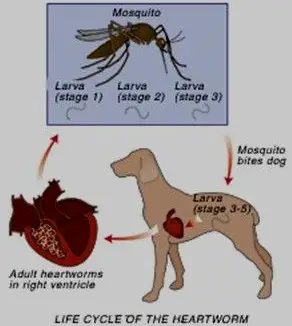
Introduction to Zoonotic Diseases
The concept of zoonotic diseases, which encompass a wide range of infections, highlights the interconnectedness between human and animal health. Understanding these diseases is crucial for safeguarding the health of both humans and animals, as they can potentially disrupt the delicate balance of our shared ecosystem.
Definition of Zoonotic Diseases – Can a human get worms from a puppy
Zoonotic diseases, also known as zoonoses, are infectious diseases that can be transmitted from animals to humans. These diseases are spread through various pathways, including direct contact, indirect contact through contaminated environments, or via bites and scratches from infected animals.
The diverse range of zoonotic diseases encompasses a spectrum of pathogens, including bacteria, viruses, fungi, parasites, and prions. These diseases can manifest in numerous ways, ranging from mild, self-limiting illnesses to life-threatening conditions.
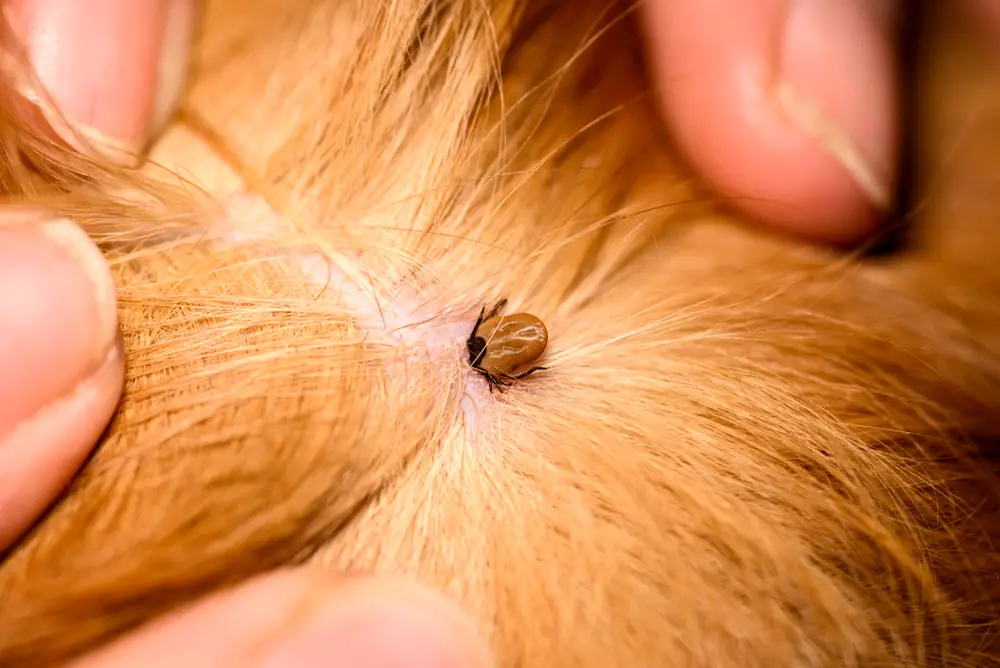
Importance of Understanding Zoonotic Risks
Awareness of zoonotic diseases is paramount for protecting both human and animal health. It empowers us to make informed decisions about our interactions with animals, including pets, livestock, and wildlife. Understanding the potential risks associated with zoonotic diseases allows us to implement preventive measures, such as vaccination, appropriate hygiene practices, and responsible animal care, effectively mitigating the spread of these infections.
Early detection and prompt treatment are essential in managing zoonotic diseases. Early intervention often improves treatment outcomes and minimizes the risk of complications. This requires a collaborative approach between veterinarians and healthcare professionals, ensuring a coordinated effort to address the health needs of both animals and humans.
Types of Worms Transmissible from Puppies to Humans
The world of worms, while often hidden from our view, can have significant impacts on our health. Understanding the types of worms that can be transmitted from puppies to humans empowers us to take proactive steps to protect ourselves and our families.
Roundworms: A Common Concern
Roundworms, scientifically known as Ascaris lumbricoides, are a common type of intestinal parasite found in dogs and humans. These worms are long and cylindrical, with a white or cream-colored appearance. Roundworms can shed microscopic eggs in a puppy’s feces, which can remain viable for long periods in the environment.

The roundworm lifecycle involves several stages:
- Eggs are ingested by a host: Puppies typically ingest the eggs through contaminated soil or by eating infected prey.
- Eggs hatch in the intestines: Inside the intestines, the eggs hatch, releasing larvae that migrate through the body.
- Larvae develop into adult worms: The larvae mature into adult worms and reproduce, releasing more eggs in feces, continuing the cycle.
Humans can become infected with roundworms by inadvertently ingesting the eggs, which can occur through various means, such as contact with contaminated soil, playing outdoors, or failing to wash their hands thoroughly after handling puppies.
Hookworms: How They Spread
Hookworms, belonging to the genus Ancylostoma, are tiny, parasitic worms that inhabit the intestines of dogs and humans. Hookworms have a characteristic hooked mouth, which they use to attach to the intestinal wall and feed on blood.
The hookworm lifecycle is similar to that of roundworms:
- Eggs are passed in feces: Infected puppies shed eggs in their feces.
- Larvae hatch and develop in the soil: Eggs hatch in warm, moist environments, releasing larvae that can survive in the soil for extended periods.
- Larvae penetrate the skin: Humans can become infected by coming into contact with contaminated soil, where the larvae can penetrate the skin, often through bare feet.
Once inside the body, the larvae migrate through the bloodstream, eventually reaching the intestines, where they mature into adult worms.

Tapeworms: The Lesser-Known Threat
Tapeworms are segmented, flat worms that live in the intestines of dogs and humans. These parasites have an intricate lifecycle that involves an intermediate host, typically a flea.
The tapeworm lifecycle involves several intriguing stages:
- Eggs are shed in feces: An infected dog passes tapeworm eggs in its feces.
- Eggs are ingested by fleas: Fleas ingest the eggs, becoming an intermediate host.
- Cysts develop in the flea: The eggs develop into larvae within the flea, forming cysts (the cyst is the larval stage of the tapeworm).
- Dog ingests flea: When a dog ingests a flea, the cyst releases a mature tapeworm, which attaches to the dog’s intestines.
- Human ingests tapeworm eggs: Humans can contract a tapeworm by accidentally ingesting flea feces containing tapeworm eggs.
Humans can also acquire tapeworms by consuming undercooked meat that contains tapeworm larvae.
How Humans Contract Worms from Puppies
The transmission of parasitic worms from puppies to humans can occur through various pathways, highlighting the importance of understanding these routes and implementing preventive measures to protect ourselves.

Routes of Transmission: Direct and Indirect Contact
Direct contact with infected puppy feces is a primary route of transmission for roundworms and hookworms. This can occur through direct contact with the feces, or by touching a puppy’s coat, which may have traces of feces. Indirect contact with contaminated environments, such as soil, toys, and household surfaces, can also lead to infection.
Environmental Factors Contributing to Infection
The environment plays a significant role in the transmission of worms from puppies to humans. Contaminated soil, particularly in areas where puppies have been playing or defecating, can harbor worm eggs for considerable periods. These eggs can be picked up by humans through contact with the soil or by contacting something that came into contact with the soil.
The Life Cycle of Common Worms
Understanding the life cycle of common worms is essential for developing targeted preventive strategies and for effectively managing infections.
Understanding the Lifecycle of Roundworms
The roundworm life cycle involves several distinct stages:
- Eggs are shed in feces: Infected puppies shed eggs in their feces.
- Eggs hatch in the environment: These eggs hatch in warm, moist environments, releasing larvae.
- Larvae develop in the soil: These larvae mature into infective larvae in the soil.
- Humans ingest larvae: Humans can become infected by accidentally ingesting these infective larvae.
- Larvae mature in the intestines: The larvae migrate to the intestines and develop into mature adult roundworms.
- Adult worms reproduce: The adult worms reproduce, shedding more eggs in feces, completing the cycle.

Hookworm Lifecycle Explained
The intricate hookworm lifecycle involves several stages:
- Eggs are passed in feces: Infected dogs or humans shed eggs in their feces.
- Eggs hatch in the environment: These eggs hatch in warm, moist environments, releasing larvae.
- Larvae develop in the soil: These larvae mature into infective larvae.
- Humans or dogs are infected: Humans can become infected by accidentally ingesting these infective larvae, while dogs can get infected by directly ingesting infective larvae or by larvae penetrating their skin.
- Larvae migrate through the body: These larvae travel to the lungs and eventually end up in the intestines.
- Adult worms reproduce: The adult worms reproduce and continue the cycle.
Tapeworm Lifecycle Overview
The tapeworm lifecycle, unlike that of roundworms and hookworms, involves an intermediate host:
- Eggs are passed in feces: Infected puppies pass tapeworm eggs in their feces.
- Eggs are ingested by fleas: These eggs are ingested by flea larvae.
- Larvae develop in the flea: These larvae mature into cysticercoids in the flea’s gut.
- Dog ingests flea: The dog ingests the infected flea, leading to the release of the cysticercoids.
- Cysticercoids develop into adult worms: These cysticercoids develop into adult tapeworms in the dog’s intestines.
- Dog sheds eggs in feces: The adult tapeworm produces eggs, repeating the cycle.
- Humans ingest tapeworm eggs: Humans can become infected by accidentally ingesting flea feces or food contaminated with tapeworm eggs.
- Humans develop tapeworm infection: This infection can lead to a variety of intestinal symptoms and discomfort.
Symptoms of Worm Infections in Humans
Worm infections in humans can manifest in various ways, ranging from mild, often overlooked symptoms to debilitating conditions.
Identifying Signs of Roundworm Infections
Roundworm infections in humans can cause a wide spectrum of symptoms, many of which are nonspecific and may be attributed to other conditions.
These symptoms include:
- Abdominal pain discomfort: Roundworm infections often cause abdominal pain, which may be intermittent or persistent.
- Nausea and Vomiting: The presence of roundworms in the digestive system can trigger nausea and vomiting, disrupting normal digestion.
- Diarrhea and Constipation: Roundworm infections can lead to changes in bowel habits, causing either diarrhea or constipation.
- Weight loss: These parasitic worms can deprive the body of essential nutrients, resulting in weight loss.
- Fatigue and weakness: The parasitic burden imposed by roundworm infections can leave individuals feeling exhausted and weak.
Symptoms Associated with Hookworm Infections
Hookworm infections in humans can cause a spectrum of symptoms, from mild to severe, depending on the number of worms present and severity of the infection.
Common symptoms of hookworm infection:
- Itching and discomfort around the area of infection: If the larvae penetrate the skin, it often causes itching and discomfort at the entry site, often the feet.
- Gastrointestinal discomfort and diarrhea: Hookworms can cause gastrointestinal discomfort, manifested as abdominal pain, diarrhea, and cramping.
- Anemia: Hookworms attach to the intestinal wall and feed on blood, leading to anemia, characterized by fatigue, weakness, and pallor.
- Skin problems: Hookworm infestations can sometimes lead to skin problems, such as pruritis, a rash, and edema.
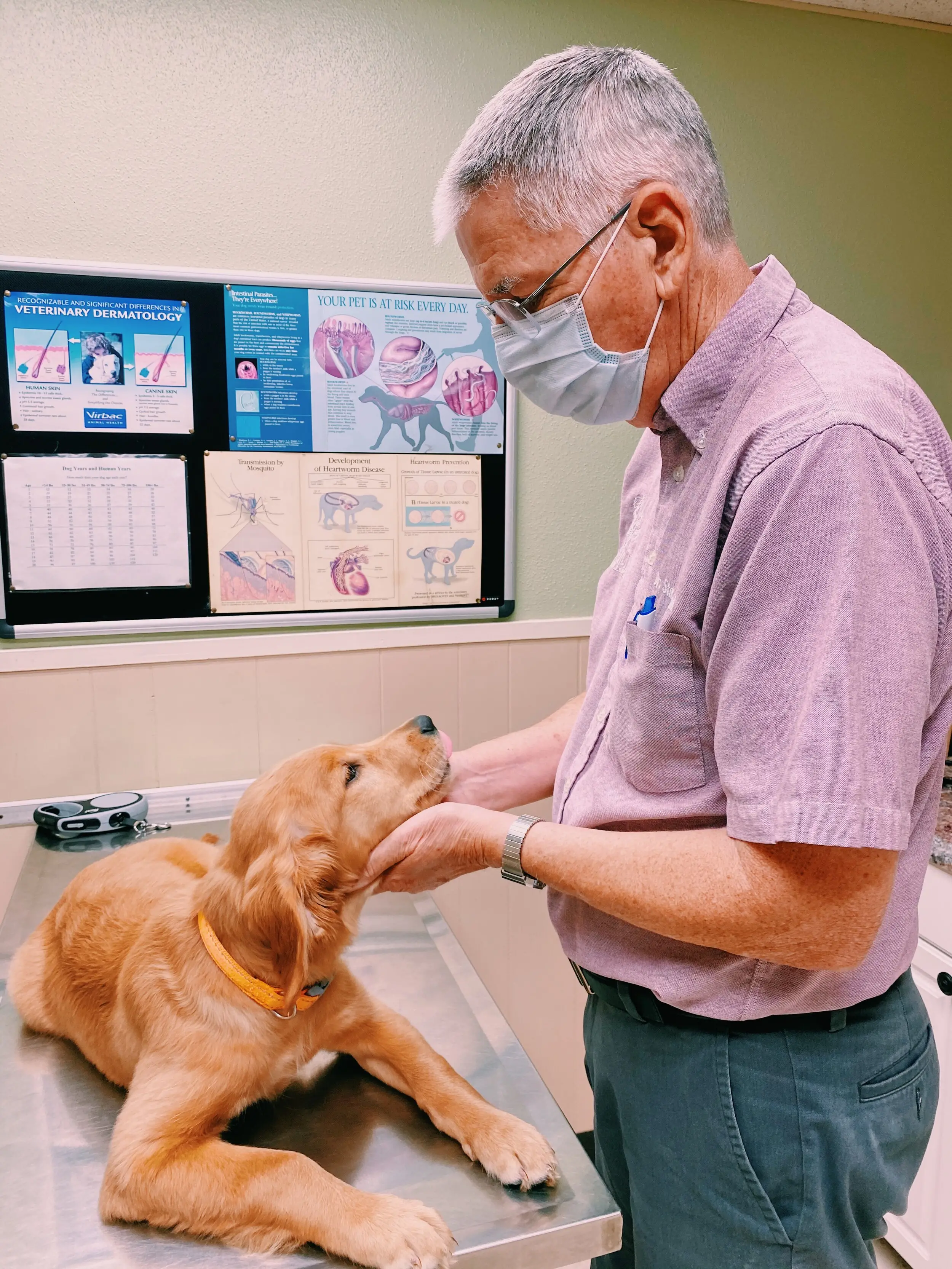
Understanding Tapeworm Symptoms
Tapeworm infection in humans usually presents with mild or nonspecific symptom, often mistaken for other digestive disorders.
Common signs of tapeworm infection:
- Abdominal discomfort: The presence of a tapeworm in the intestines can cause abdominal discomfort, which ranges from mild to severe.
- Loss of appetite: Tapeworms can disrupt normal digestion and may lead to a loss of appetite.
- Weight loss: Tapeworms can absorb nutrients from the host, leading to weight loss.
- Diarrhea or constipation: Tapeworms can disrupt bowel habits, causing either diarrhea or constipation.
- Passing of tapeworm segments (proglottids): One of the unmistakable signs of tapeworm infection is the passage of tapeworm segments in the feces. These segments are small, flat, and can be visible to the naked eye.
Vulnerable Populations: Who is at Greater Risk?
Certain populations are more susceptible to worm infections, due to factors such as age, immune status, and socioeconomic conditions.
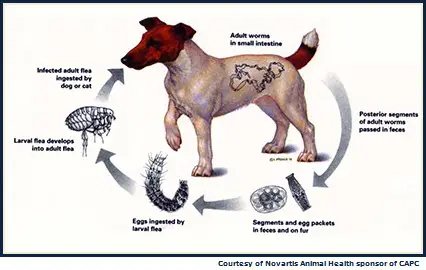
Children: Why They are More Susceptible
Children are particularly vulnerable to worm infections for the following reasons:
- Exploration and Curiosity: Young children spend a lot of time exploring their environments, often playing outdoors, putting them at a higher risk of ingesting worm eggs through contact with contaminated soil or objects.
- Hygiene and Handwashing Habits: Children, especially those under five years old, may not have developed consistent handwashing habits, increasing their risk of ingesting worm eggs after contact with feces.
- Immune System Development: Young children have still developing immune systems, which may be less effective at fighting off parasite infections.
It is crucial for parents and caregivers to be vigilant about implementing proper hygiene practices to minimize the risk of worm infections in young children.
Immunocompromised Individuals: Increased Risks
Individuals with compromised immune systems, due to conditions such as HIV/AIDS, organ transplantation, and cancer treatments, are more susceptible to developing severe worm infections.
Weakened immune systems may be less effective at resisting parasites, allowing them to thrive and cause significant health problems.
Those Who Work with Animals: Greater Risk
Individuals who work with animals, such as veterinarians, farmers, and animal handlers, are at an increased risk of worm infections.
- Exposure to Feces: These individuals may have frequent contact with animal feces, increasing their exposure to worm eggs.
- Lack of Adequate Safety Practices: Insufficient safety procedures, such as proper handwashing and protective clothing, can increase the risk of infection.
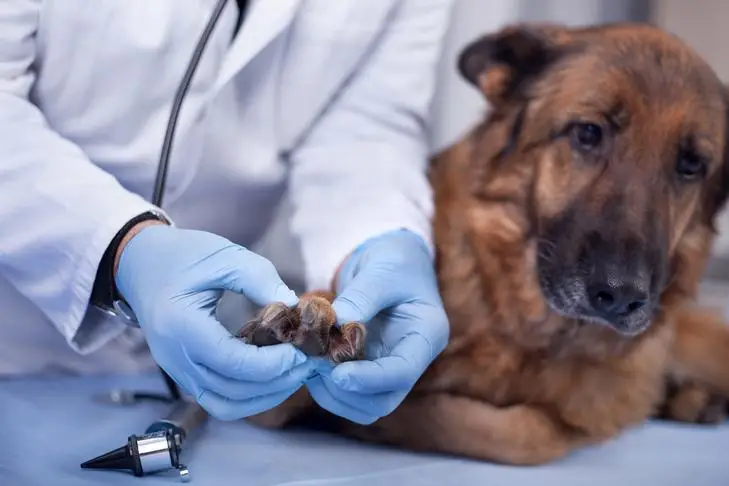
Preventive Measures for Pet Owners
Prevention is the cornerstone of managing worm infections in humans and pets. Taking proactive steps reduces the risk of transmission and safeguards the health of both our furry companions and ourselves.
Regular Veterinary Visits and Deworming Protocols
Regular veterinary check-ups are essential for maintaining the health of our canine companions. These visits provide opportunities for veterinarians to assess the puppy’s overall health, monitor for any signs of illness, and recommend appropriate deworming protocols.
Deworming medications are available to effectively eliminate worms from puppies and are an essential part of preventive pet care. Vaccines are also beneficial to protect against a variety of diseases, including some zoonotic diseases.
Best Hygiene Practices Around Pets
Maintaining good hygiene practices around pets is crucial to minimize the risk of worm transmission.
- Frequent handwashing: Always wash your hands thoroughly after handling puppies, particularly after cleaning up after them.
- Cleaning up after your pet: Regularly clean up your puppy’s feces to minimize the spread of eggs.
- Disinfecting surfaces: Disinfect toys, food bowls, and other surfaces that come into contact with your puppy.
- Wearing appropriate clothing: Consider wearing gloves when cleaning up after your pet or when working with soil that may be contaminated.

Educating Family Members About Safety
Educating all family members, especially children, about the importance of hygiene practices around pets is crucial. Explain the risks of contracting worms, the importance of handwashing after handling pets, and how to avoid contact with contaminated soil.
Encourage children to avoid putting their hands in their mouths after handling pets or playing outdoors.
The Role of Soil and Outdoor Environment
The outdoor environment, especially soil, can play a crucial role in the spread of worms.
How Contaminated Soil Harbors Worm Eggs
Worm eggs can survive for extended periods in the soil, especially in warm, moist conditions. These eggs represent a significant source of contamination for humans and pets.
Puppies, especially those who spend time outdoors, frequently ingest worm eggs through contact with contaminated soil and from playing in contaminated areas.
Strategies to Reduce Soil Contamination
Several strategies can help reduce soil contamination and minimize the risk of worm infection.
- Regularly cleaning up after your puppy: Remove puppy feces from areas where your dog plays and defecates.
- Fencing your yard: Fencing your yard can help limit your puppy’s access to areas that may be contaminated with worm eggs.
- Avoidance of contaminated areas: Avoid taking your puppy to areas known to be contaminated, such as parks or communal spaces where other dogs may have been.
Community Health Implications of Worm Transmission
Worm transmission can have broader health implications at a community level, affecting not only individual households but entire populations.
Public Awareness Campaigns on Zoonotic Diseases
Public awareness campaigns about zoonotic diseases, including worm infections, are essential in educating communities about potential health risks and empowering them to take preventative measures.
These campaigns can raise awareness about the importance of maintaining good hygiene practices, the roles of pets in disease transmission, and the availability of veterinary care.
The Importance of Accessible Veterinary Care
Accessible veterinary care is crucial for promoting both human and animal health. When veterinary care is readily available, pet owners are more likely to seek preventative care, including routine veterinary checkups and deworming protocols.
This leads to a healthier pet population and reduces the risk of zoonotic disease transmission.

The Ripple Effect of Parasite Outbreaks
Parasite outbreaks, including worm infections, can have far-reaching consequences on communities and public health systems.
Impact on Local Communities and Play Areas
Parasite outbreaks can significantly impact the safety and health of local communities. Playgrounds and outdoor spaces, often frequented by children and pets, may become contaminated, posing a risk of infection for anyone who comes into contact with the area.
Long-term Effects on Public Health Systems
Parasite outbreaks can strain public health systems, requiring increased resources for treatment, disease surveillance, and public health education.
The economic burden associated with managing these outbreaks can be significant.
The Bond Between Pets and Their Owners
Owning a puppy is a deeply rewarding experience, bringing boundless joy, companionship, and unconditional love into our lives.
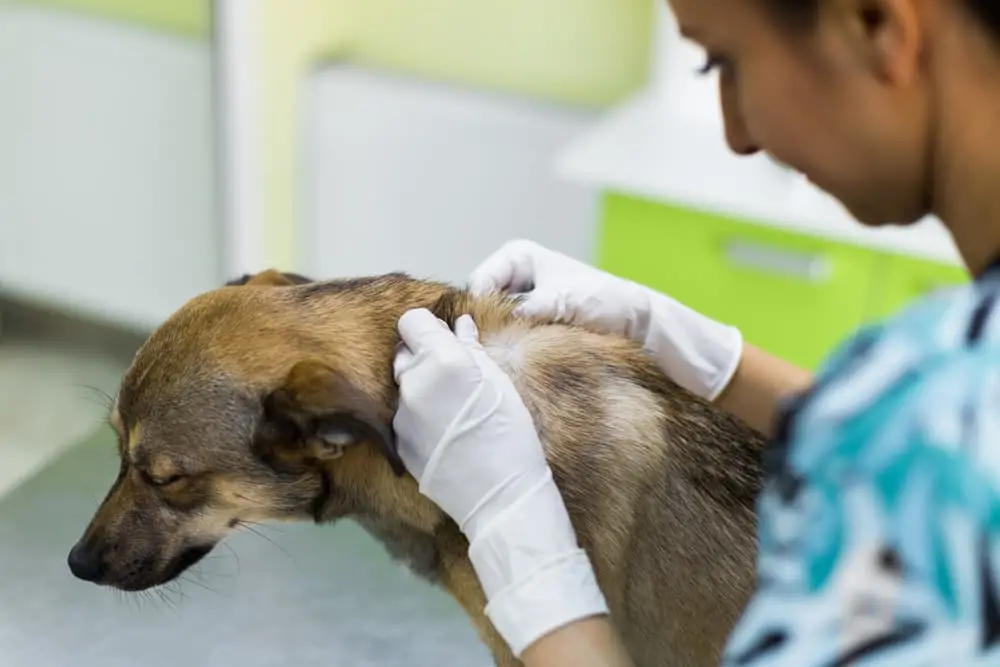
Emotional Benefits of Owning a Puppy
Dogs bring unconditional love, reducing stress and loneliness, elevating our mood, and fostering social connections. They provide a sense of purpose, routine, and structure, encouraging physical activity.
Balancing Joy and Responsibilities
While the joy of owning a puppy is undeniable, it’s essential to balance our love for our pets with a commitment to their health and safety. This includes taking responsibility for their preventative care, minimizing the risk of contracting zoonotic diseases, and ensuring the well-being of both our furry friends and ourselves.
Conclusion
The potential for humans to contract worms from puppies underscores the interconnectedness of human and animal health. This article has explored the complexities of parasitic worm infections, emphasizing the importance of vigilant preventative measures to safeguard the health of both our pets and ourselves.

By embracing responsible pet ownership practices, maintaining good hygiene habits, and promoting public awareness about zoonotic diseases, we can minimize the risk of worm transmission, ensuring a healthier future for both humans and animals.


